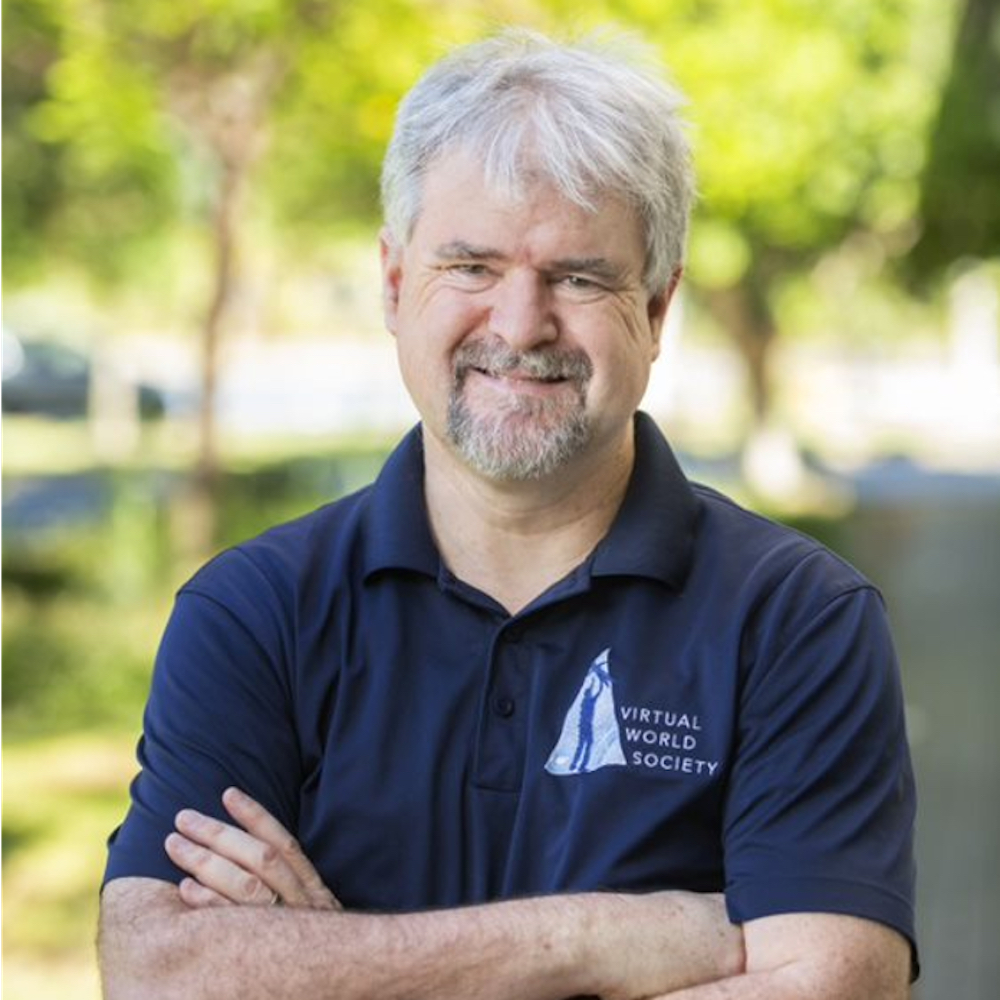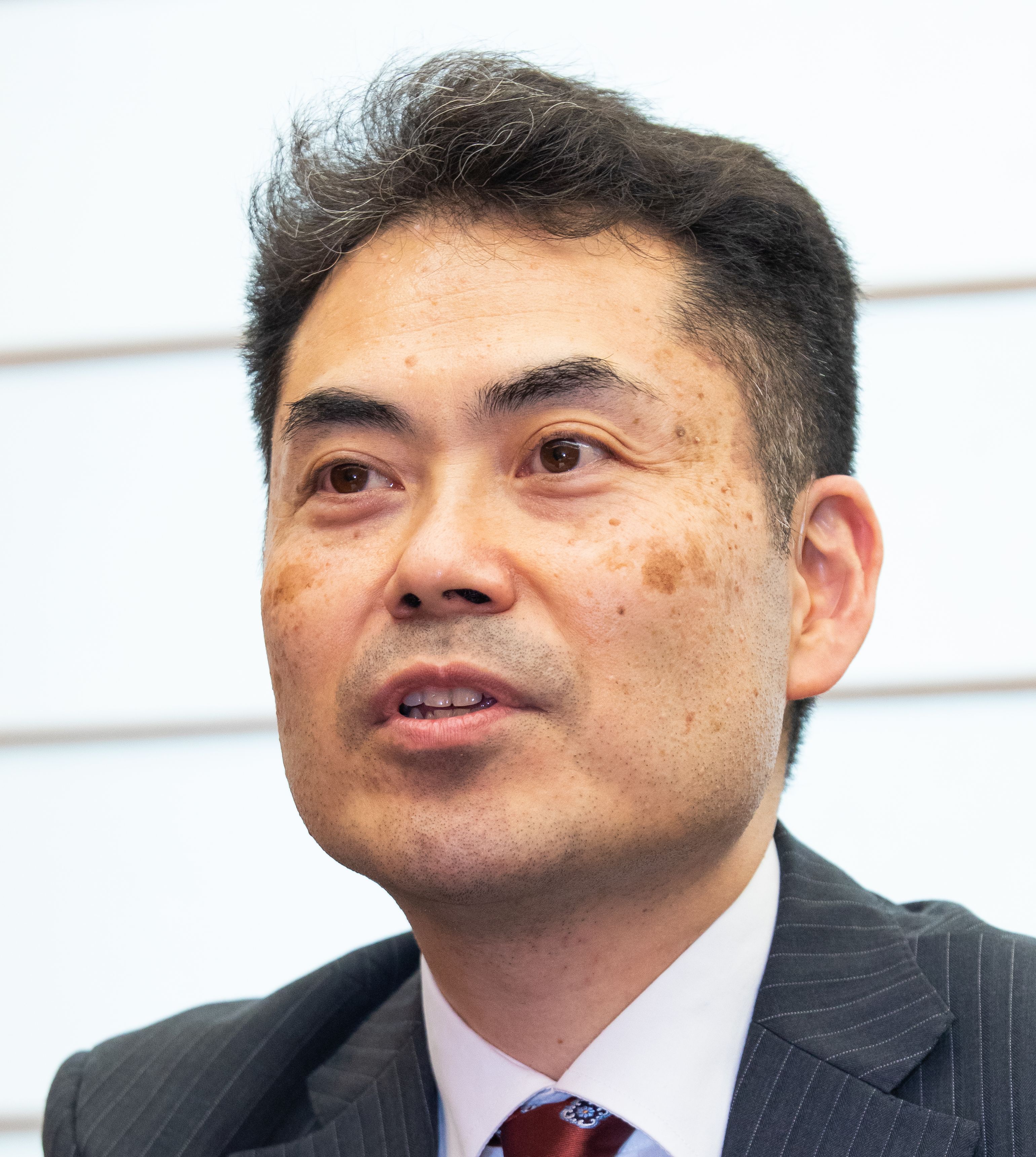Keynote
 Mark Billinghurst
Mark Billinghurst
Title: Research Directions in Empathic Computing: Creating Next Generation Collaborative Systems Abstract: Empathic Computing is a new research field that combines AR, VR, physiological sensing and AI to create new ways to enhance face to face and remote collaboration. The goal is to create collaborative systems that share understanding. This talk presents the concept of Empathic Computing and then some examples of Empathic Computing interfaces that have been developed by the Empathic Computing laboratory and others. It also outlines directions for future research and important unsolved problems. Bio: Professor Mark Billinghurst is Director of the Australian Research Centre for Interactive Virtual Environments at the University of South Australia and Director of the Empathic Computing Laboratory at the University of Auckland, and the University of South Australia. He earned a PhD in 2002 from the University of Washington and conducts research on how virtual and real worlds can be merged, publishing over 750 papers on Augmented Reality, Virtual Reality, remote collaboration, Empathic Computing, and related topics. In 2013 he was elected as a Fellow of the Royal Society of New Zealand, in 2019 was given the ISMAR Career Impact Award in recognition for lifetime contribution to AR research and commercialization, and in 2023 elected as a Fellow of the IEEE.
 Kiyoshi Kiyokawa
Kiyoshi Kiyokawa
Title: Designing Happiness: The Future of Well-being with XR Abstract: This keynote explores the future of Extended Reality (XR) as it evolves beyond entertainment into a powerful tool for augmenting human experience and contributing to our well-being. The core concept is a vision of "Cybernetic Reality," where humans and computers integrate to guide us toward a happier and more fulfilling perceptual state. I will introduce cutting-edge research showcasing how this technology enables self-transformation, as if "wearing a new reality," allowing us to expand our perception and acquire new abilities. Furthermore, I will discuss how perceptual manipulation via AR can support a healthier lifestyle. This keynote will present a future where the ultimate goal of XR is not to escape reality, but to redesign it, unlocking individual potential and creating a society where everyone can thrive. Bio: Kiyoshi Kiyokawa is a Professor at the Nara Institute of Science and Technology (NAIST), where he leads the Cybernetics and Reality Engineering (CARE) Laboratory. He is a distinguished researcher in virtual reality (VR), augmented reality (AR), and human augmentation. Professor Kiyokawa received his M.S. and Ph.D. degrees from NAIST in 1996 and 1998, respectively. His career includes positions as an Associate Professor at Osaka University, a researcher at the Communications Research Laboratory (now NICT), and a visiting scholar at the University of Washington’s Human Interface Technology Laboratory. His significant contributions have been recognized with numerous accolades, including the 2022 IEEE VGTC Virtual Reality Technical Achievement Award, the inaugural 2022 IEEE VGTC Virtual Reality Service Award, and the title of Fellow from the Virtual Reality Society of Japan (VRSJ). Professor Kiyokawa's research has resulted in several pioneering technical achievements. He is known for developing advanced head-mounted display (HMD) systems, including ELMO, the first occlusion-capable optical see-through HMD in 1999. His foundational work also includes VLEGO, one of the first collaborative immersive modelers, and SeamlessDesign, which featured the first transitional interface for switching between VR and AR. His research extends to vision augmentation and assistive interfaces, collaborative virtual and augmented reality, and innovative multimodal interfaces. Beyond his research, Professor Kiyokawa has demonstrated a profound dedication to the academic community through extensive service and leadership. He has served on the Steering Committees for top-tier conferences, including IEEE VR, IEEE ISMAR, and IEEE 3DUI. His leadership roles are numerous, having served as General Co-Chair for IEEE VR 2019 in Osaka, which was the largest in-person conference in its history at the time. Additionally, he is on the Editorial Board of IEEE Transactions on Visualization and Computer Graphics (TVCG) and has frequently been a Board Member of the VRSJ.
 Martin Göbel
Martin Göbel
Title: From plotter to Virtual Reality Abstract: Beginning of 1980 I had to do with the first 2D-Standard, GKS – Graphical Kernel System. Then about 10 years later, Virtual Reality powered by Silicon Graphics machines came up. We build the first CAVE in Europe in 1996, the Responsive Workbench and finally the iCONE, a 270 degrees cylindric wall. With the nVidia boards 10 years later, PCs came up and SGIs were gone. Visual Computing arise, which is the simulation of physics in real time and the visual presentation interactively and the use by industry. Bio: Dr. Martin Göbel was consultant at the Institute of Visual Computing at the Bonn-Rhein-Sieg University of Applied Sciences in St. Augustin, Germany until 2021. Since 2021 Martin Göbel is retired. Before that, he was CEO of 3DAround GmbH, which was concentrating on holographic light technologies. Between 2004 and 2009 he was CEO of flexilution GmbH, in Cologne, which was specialized on flexible simulation of cables and hoses for cars. From 1996 he was a competence center director for Virtual Environments in the GMD in Birlinghoven, where he implemented the first CAVE in Europe. From 1987 Göbel was a senior scientist in the Fraunhofer Institute for Computer Graphics, Darmstadt, where he coordinated the Fraunhofer Demonstration Centre between Darmstadt and Stuttgart. His professional career began in 1982 at the Technical University in Darmstadt with Prof. J.L.Encarnacao. Martin Göbel was born in 1955, he studied Computer Science at the Technical University of Darmstadt where he received the diploma degree (master in science) in 1982. He received the PhD (Dr.-Ing.) in 1990 from Darmstadt Technical University. He is author and editor of several books on Graphics Standards, Visualization and Virtual Reality and over 100 publications in books, refereed journals and conference proceedings. He has established the Eurographics Workshops on Virtual Environments (EGVE) in 1993 and chaired them. In 2003 the ARVR-group of the German Computer Society (GI-ARVR) was founded by him. Göbel has been program cochair of the EUROGRAPHICS '95 and '98 conferences and the IEEE VR 2001, 2002 & 2004 conferences and General Chair of IEEE VR2005 in Bonn and 2006 in Washington. The Honorary Chair of IEEE VR 2015 in Arles, France and 2018 in Reutlingen, Germany and the ACM VRCAI 2019 in Brisbane, Australia concluded his career.
 Christian Sandor
Christian Sandor
Title: On the Convergence of Augmented Reality and AI Abstract: Augmented Reality (AR) embeds spatially-registered computer graphics into a user’s view of the real world. During the last 25 years, my research focus has been on AR. Since 2018, I have been studying the applications of AI, particularly Deep Learning, to Visual Computing. In April 2024, I started a new research team to investigate the convergence of AR and AI. This talk consists of two parts. First, I present my previous work on AR and AI. Second, I introduce our current thoughts on why AR+AI will change the world forever. Bio: Dr. Christian Sandor is a Professor at Université Paris-Saclay and the leader of the ARAI team at CNRS (Centre National de la Recherche Scientifique). Since the year 2000, his foremost research interest is Augmented Reality, as he believes that it will have a profound impact on the future of mankind. In 2005, he obtained a doctorate in Computer Science from the Technische Universität München, Germany under the supervision of Prof. Gudrun Klinker and Prof. Steven Feiner. He decided to explore the research world in the spirit of Alexander von Humboldt and has lived outside of Germany ever since to work with leading research groups at institutions including: The University of Tokyo (Japan), Nara Institute of Science and Technology (Japan), Columbia University (New York, USA), Canon’s Leading-Edge Technology Research Headquarters (Tokyo, Japan), Graz University of Technology (Austria), University of Stuttgart (Germany), University of South Australia, City University of Hong Kong, and Tohoku University (Japan). Together with his students, he won multiple awards at the premier Augmented Reality conference, IEEE International Symposium on Mixed and Augmented Reality (IEEE ISMAR): best demo (2011, 2016) and best poster honorable mention (2012, 2013). Further awards include: best short paper at ACM SIGGRAPH International Conference on Virtual-Reality Continuum and its Applications in Industry (2018), best paper at ACM Symposium on Spatial User Interaction (2018), and best demo (audience vote) at ACM SIGGRAPH Asia XR (2023). He has presented several keynotes and has acquired over 3 million USD funding. In 2012, he was awarded in Samsung’s Global Research Outreach Program. In 2014, he received a Google Faculty Award for creating an Augmented Reality X-Ray system for Google Glass. In October 2020, he was appointed Augmented Reality Evangelist at the Guangzhou Greater Bay Area Virtual Reality Research Institute. In 2021, Dr. Sandor was named “Associate Editor of the Year” by IEEE Transactions on Visualization and Computer Graphics. He currently serves as an editorial board member for Virtual Reality & Intelligent Hardware and as a steering committee member for ACM Symposium on Spatial User Interaction. He has been program chair for numerous conferences, including IEEE ISMAR, ACM SIGGRAPH Asia XR, and ACM SIGGRAPH Asia Symposium On Mobile Graphics And Interactive Applications.